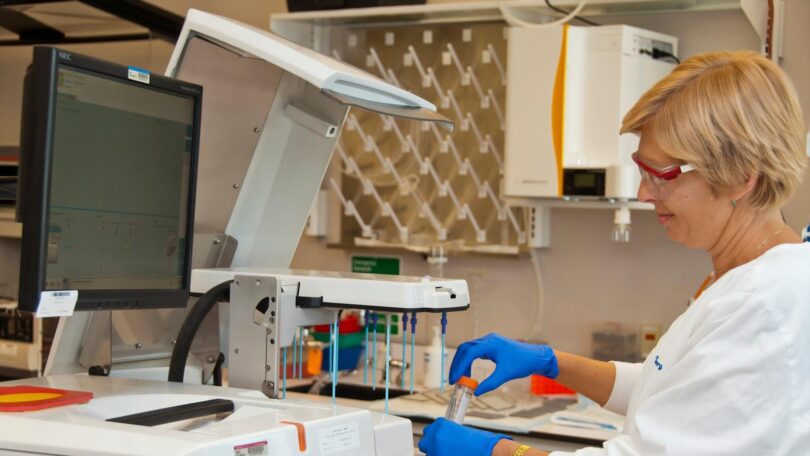In an age where scientific advances are unlocking the mysteries of our genetic code, the intersection of genetic testing and data has created a legal DNA maze for individuals and institutions to navigate. As technology continues to progress, questions surrounding privacy, ownership, and consent have become increasingly complex. In this article, we will explore the intricate web of laws and regulations that govern genetic testing and data, shedding light on the key considerations that individuals must keep in mind when delving into the world of personalized genetics.
1. Understanding the Intricacies of Genetic Testing and Data
Genetic testing and the data it yields can be a maze of complexity, encompassing a wide range of legal and ethical considerations. With advancements in technology, the intricacies of genetic testing continue to evolve, creating a landscape that can be perplexing to navigate. Understanding the nuances of this field is crucial to ensuring that personal genetic data remains secure and protected.
In the realm of genetic testing, the legal complexities surrounding DNA data are vast and constantly changing. From issues of consent and ownership to concerns about genetic discrimination, the legal landscape can present a burst of challenges for individuals seeking to make informed decisions about their genetic information. Being aware of the legal intricacies is essential for anyone considering undergoing genetic testing.
When facing the challenges of data privacy in genetic testing, it is important to adopt best practices for protecting sensitive genetic data. Implementing strategies like encryption, access controls, and secure data storage can help mitigate the risks associated with the collection and storage of genetic information. By navigating the legal DNA maze with an understanding of these complexities and utilizing best practices, individuals can safeguard their genetic data effectively.
2. Legal Complexities Surrounding DNA Testing and Personal Data
Navigating the can feel like embarking on a treacherous journey through a dense maze. With laws and regulations constantly evolving, staying informed is crucial to avoid potential pitfalls. Data protection and privacy laws, such as the General Data Protection Regulation (GDPR), play a significant role in shaping the landscape of genetic testing.
Understanding the implications of consent and confidentiality is paramount when it comes to genetic data. Ethical considerations must also be taken into account, as the use of genetic information can have far-reaching consequences. As advancements in technology continue to push the boundaries of genetic testing, it is essential to stay abreast of the legal framework to protect both individuals’ rights and the integrity of their data. By staying proactive and informed, one can effectively navigate the legal DNA maze and safeguard personal information in an ever-changing landscape.
3. Meeting the Challenges of Data Privacy in Genetic Testing
In the realm of genetic testing, data privacy is a paramount concern that individuals and organizations must navigate with precision and care. The intricate web of legal regulations, ethical considerations, and technological advancements surrounding genetic data adds a layer of complexity to an already complex landscape. To effectively meet the challenges of data privacy in genetic testing, it is crucial to stay informed, proactive, and vigilant in protecting sensitive genetic information.
One key strategy for safeguarding genetic data is to encrypt all stored information to prevent unauthorized access. Implementing strict access controls and regular security audits can help identify and rectify potential vulnerabilities before they are exploited. Additionally, establishing clear consent protocols for data sharing and ensuring compliance with data protection laws are essential steps towards maintaining trust and integrity in genetic testing practices. By taking a proactive approach to data privacy challenges, individuals and organizations can navigate the legal DNA maze with confidence and resilience.
4. Exploring Best Practices for Protecting Genetic Data
When it comes to protecting genetic data, it’s crucial to understand the best practices to safeguard sensitive information. One key approach is to encrypt all data to prevent unauthorized access. Additionally, implementing secure storage protocols and regularly updating security measures can help mitigate potential risks.
Furthermore, prioritizing informed consent from individuals before any genetic testing is conducted is essential. This ensures that individuals understand how their data will be used and have the opportunity to make informed decisions about sharing their genetic information. Regularly auditing data handling processes and ensuring compliance with data protection regulations are also critical aspects of protecting genetic data effectively.
By embracing these best practices and remaining vigilant in navigating the legal complexities surrounding genetic data, individuals and organizations can uphold the privacy and security of genetic information in an increasingly data-driven world.
5. Strategies for Navigating the Legal DNA Maze Effectively
In the complex world of genetic testing and data, navigating the legal DNA maze effectively requires a strategic approach. One key strategy is to stay informed about the ever-evolving laws and regulations surrounding genetic testing and data privacy. This involves regularly keeping up to date with changes in legislation and seeking legal counsel when necessary.
Another important strategy is to securely store and protect genetic data to ensure compliance with privacy laws and regulations. Implementing strong data security measures and encryption can help prevent unauthorized access and data breaches. Additionally, obtaining consent from individuals before collecting and using their genetic data is crucial to avoid legal complications.
Lastly, collaborating with legal experts and privacy professionals can help companies and individuals effectively navigate the legal DNA maze. Seeking guidance and advice from professionals who specialize in genetic testing and data privacy can provide valuable insights and ensure legal compliance in this complex and rapidly changing landscape.
Key Takeaways
As science continues to advance, the legal complexities surrounding genetic testing and data will undoubtedly evolve. Navigating this DNA maze can be challenging, but with the proper understanding and precautions, individuals can ensure their genetic information remains protected. Whether it’s safeguarding your privacy or understanding your rights, staying informed and proactive is key. By staying informed on the current legal landscape and seeking guidance from experts in the field, individuals can confidently navigate the intricate world of genetic testing and data.








